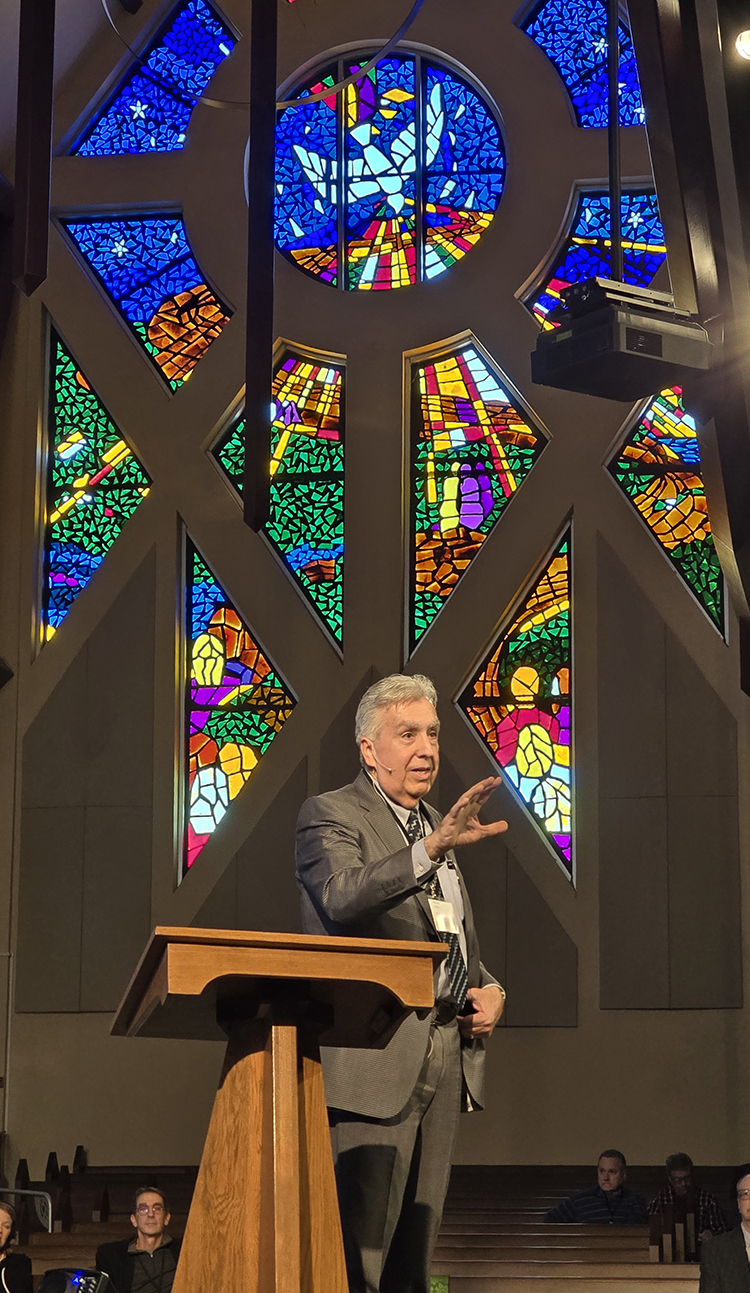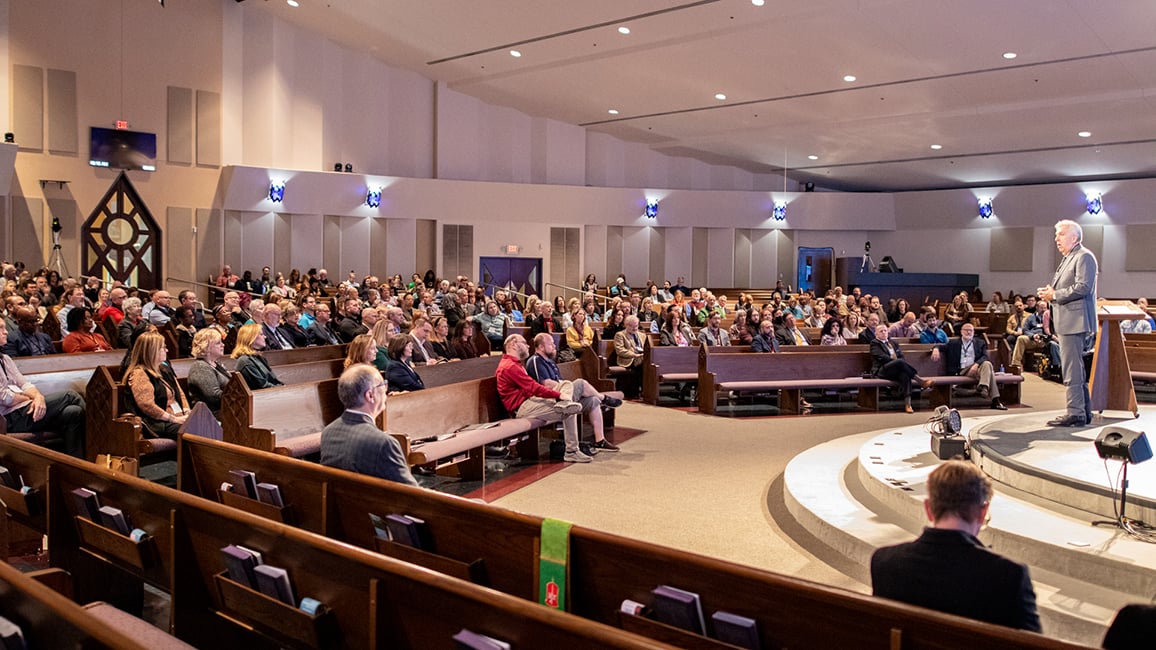Covenant Day 2024: AI, 'Future Back' and Anxiety
'No matter what our feelings are about technology, our calling is the same,' writes Rev. Patrick Hoffman
Covenant Day on January 30 brought together clergy from across three conferences to explore our calling in a rapidly changing context and to glean wisdom from renowned author and speaker Bob Johansen.
Said Kelly Carpenter, Interim Director of the Center for Leadership Development: “In our ever-changing world, it is important to find grounding, such as seeking clarity and releasing certainty. We are also challenged to engage emerging technology to elevate the impact of clergy leadership and equip clergy to live into the spiritual, prophetic and pastoral presence of their calling.”
Rev. Patrick Hoffman, pastor of First UMC Celina, offers this reflection on his experience:
 Yesterday, I gathered with around 300 clergy from the North Texas, Central Texas and Northwest Texas Annual Conferences for Clergy Covenant Day.
Yesterday, I gathered with around 300 clergy from the North Texas, Central Texas and Northwest Texas Annual Conferences for Clergy Covenant Day.
Based on the pattern set for us by John Wesley, Covenant Day is an opportunity for Methodist clergy to meet in the new year, celebrate our shared commitment to the church, hear from our Bishop and learn something new.
This year, we heard from Bob Johansen, a futurist and author of Office Shock: Creating Better Futures for Working and Living, who introduced us to the idea of “future back” thinking.
He explained that, in a world characterized by rapid change and uncertainty, the ability to think "future back" will become increasingly essential for individuals and organizations alike. Thinking "future back" involves envisioning the future as if it has already happened — and then working backward to identify the steps needed to reach it. Rather than being reactive to current trends or challenges, this approach encourages proactive foresight and strategic planning based on a compelling vision of the future.
There was talk about Augmented Intelligence (AI), ChatGPT and virtual reality, and I’ll admit, it was a bit overwhelming. One of the things AI is good at is coming up with words, and I am called to a ministry defined by proclaiming the word. Will AI replace me? I believe in the ministry of presence, of being there for people who are in pain, who are celebrating and who need people “with skin on them” in their lives to know God is with them no matter what. How does virtual reality change the realities of ministry I’ve gotten used to over the past decade? How does ethics play a part in all of this? And why couldn’t this have been a Zoom meeting!?
 I imagined what Mr. Wesley would think, if he were present at our Covenant Day gathering.
I imagined what Mr. Wesley would think, if he were present at our Covenant Day gathering.
While I would like to believe he’d side with my anxiety — and I’m sure he may have had questions — there’s part of me that has faith Wesley would be proud that his spiritual descendants were wrestling with such topics. After all, Wesley saw the world he lived in — with all its changes, revolutions and uncertainty — as his pastoral responsibility. He urged the people called Methodists to retain not only the form of their religion, but the power of it as well — the power to remember their identity, and to remain relevant by being clear about our mission: “Making disciples of Jesus Christ for the transformation of the world.”
So, what happens when we think about the future God envisions and calls us to?
From scripture — especially the prophets — we hear about a world made new, a world where the wounded find healing, the lonely find belonging, the silenced are given voice and the hungry have enough to eat. We hear of a world where swords are beaten into plowshares, the overworked and weary find rest and the mourning have reason to shout for joy. We hear of a world where scarcity is transformed into abundance, enemies are transformed into friends and death is transformed into eternal life.
When we think about the future God envisions, no matter what our feelings are about technology, our calling is the same: to work together and with God to make it a reality.
We might fail. We might succeed. We’ll probably do both. But as we work, play, rest and praise, we know that the God who has made a covenant with us is a God whose love is the same yesterday, today and tomorrow. God’s love gives us courage, hope and imagination. God’s love holds us together and equips us with what we need to do the work we’re called to.
So, as we head into the future, in the words of John Wesley: “Best of all, God is with us.”
Published: Wednesday, January 31, 2024

